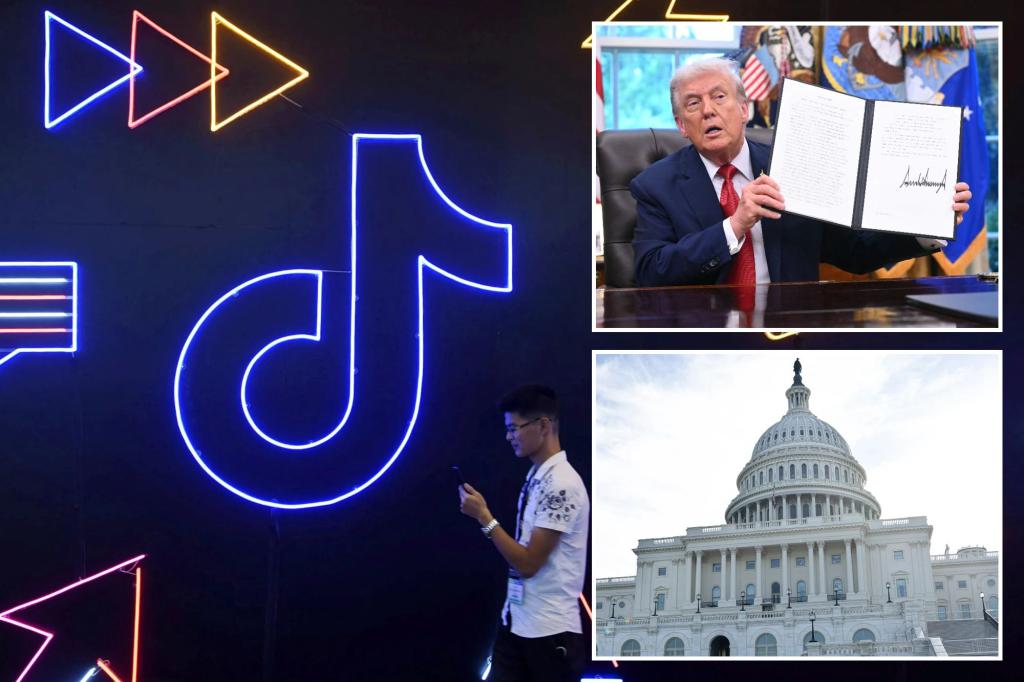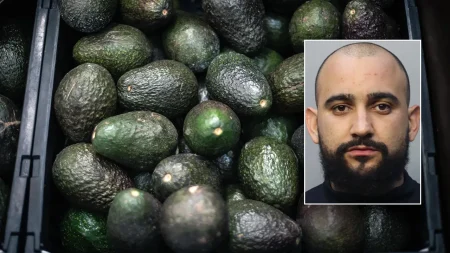Republicans Cautiously Back Trump’s TikTok Deal Despite Security Concerns
In a surprising turn of events, Republican China hawks are expected to reluctantly support President Trump’s efforts to preserve TikTok’s operations in the United States, despite harboring significant national security concerns. Earlier this week, key Republicans attended a closed-door briefing where administration officials outlined the structure of a new US-controlled company that will house the immensely popular short-video app. The briefing included crucial details about how the all-important recommendation algorithm—the heart of TikTok’s functionality—would operate under the new arrangement. This compromise aims to comply with existing legislation that mandates the app’s ban if any trace of Chinese control remains, while allowing the platform to continue operating for its millions of American users.
The technical solution at the core of this new arrangement involves reformatting the Chinese algorithm, currently owned by Beijing-based ByteDance, through the expertise of Oracle, the software giant co-founded by billionaire Trump supporter Larry Ellison. However, this approach has raised eyebrows among Congressional staffers who question whether an algorithm can truly be rewritten to eliminate all possibilities of Chinese espionage. According to individuals familiar with the briefing details, the algorithm will essentially remain Chinese in origin and will be leased to the new US company rather than transferred outright. “From a national security standpoint this isn’t so great,” remarked one person with direct knowledge of the briefing. “The algo will be leased by the Chinese to the US TikTok for 10 years and Oracle won’t have complete say in terms of how to change it.” This arrangement leaves lingering questions about whether the technical safeguards will prove sufficient to prevent potential backdoor access by Chinese entities.
Beyond algorithm concerns, lawmakers have expressed worries about the financial structure of the deal, which appears to heavily benefit Chinese interests. ByteDance will maintain a 20% ownership stake in the new company, and when combined with the licensing fees for the algorithm, China stands to collect approximately 50% of the new company’s profits. This financial arrangement has dramatically reduced the valuation of the new TikTok entity from an anticipated $40 billion to approximately $16 billion. The substantial revenue flowing back to China through this structure raises questions about whether the deal truly addresses the fundamental concerns that led to calls for divestiture in the first place. Nevertheless, Oracle plans to conduct additional Congressional briefings in the coming weeks, and hearings may be scheduled in the months ahead to further examine these concerns.
Despite these significant reservations, Republican lawmakers appear reluctant to challenge President Trump on this issue, recognizing the deal’s importance to his broader China trade strategy. “I don’t think this is a hill anyone in the Republican Party is going to die on given how much the president wants this deal,” noted one person close to the GOP’s China hawk faction. This pragmatic approach reflects the political realities of intra-party dynamics, where challenging the president on what he considers a key foreign policy initiative carries significant political risk. It also highlights the complex balance between national security imperatives and maintaining party unity during the early days of Trump’s second administration, when establishing momentum for his agenda remains a priority.
The legal foundation for TikTok’s continued operation hinges on the interpretation of “control” as defined in the Congressional ban law—a determination that largely rests with the president. Trump and Vice President JD Vance, who played a significant role in structuring the new TikTok arrangement, believe the US security safeguards implemented in the deal sufficiently comply with legal requirements. This marks a remarkable evolution in Trump’s position on TikTok since his first term, when he attempted to ban the app entirely based on concerns that the Chinese Communist Party was using it for espionage. His changed perspective reportedly stems from attributing part of his 2024 election victory to his campaign’s effective use of TikTok to distribute pro-MAGA content to younger audiences—a demographic traditionally difficult for Republican candidates to reach.
The current situation represents the latest chapter in TikTok’s tumultuous regulatory journey in the United States. In April 2024, then-President Biden signed bipartisan legislation that would have banned TikTok from US app stores if Chinese control wasn’t relinquished. Upon taking office, Trump issued executive orders preventing this ban from taking effect while a new ownership structure was developed—a process that culminated in Thursday’s finalized deal. This compromise solution attempts to thread the needle between national security considerations and preserving a platform that has become culturally significant to millions of Americans, particularly younger generations. While the deal may temporarily resolve TikTok’s status in the United States, the underlying tensions between American technological sovereignty and Chinese influence in digital spaces remain unresolved, suggesting this issue may resurface throughout Trump’s second term as technology and geopolitical circumstances evolve.











